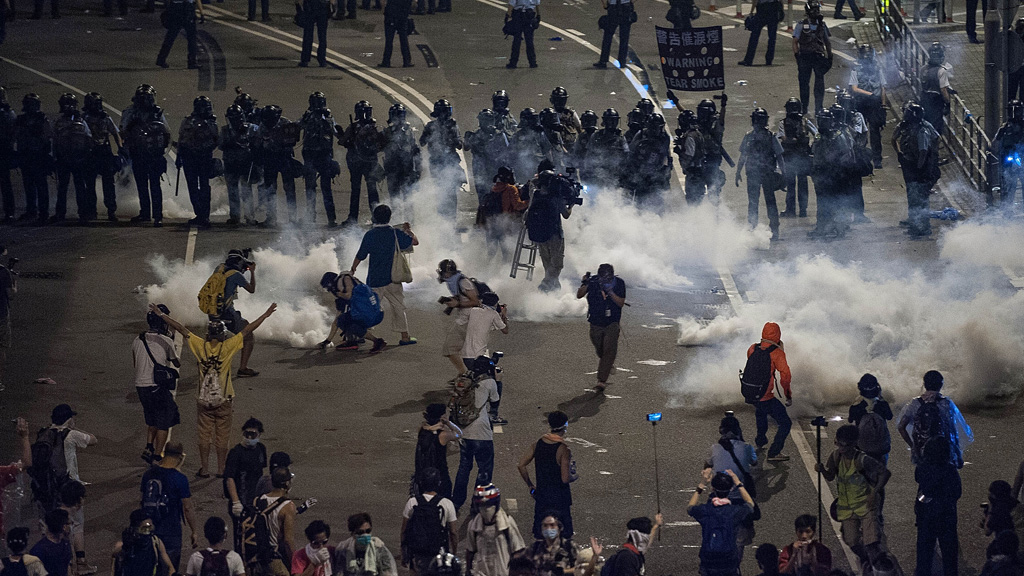Hong Kong demonstrators defiant as protests grow
Hong Kong democracy protesters defy volleys of tear gas and police baton charges to stand firm in the global financial hub, in an attempt to challenge Beijing’s demands to restrict free elections.
The unrest, the worst in Hong Kong since China resumed its rule over the former British colony in 1997, sent white clouds of gas wafting among some of the world’s most valuable office towers and shopping malls before riot police suddenly withdrew around lunchtime on Monday, after three nights of confrontation.
Hong Kong leader CY Leung said that the government is resolute in opposing the unlawful occupation by Occupy Central. In a statement on its website, Mr Leung said: “Let me make an appeal to various sectors of the community to engage in rational discussions through peaceful and lawful means so as to allow the five million eligible voters in Hong Kong to elect the chief executive in 2017 for the first time in Hong Kong history by one person one vote”. Protesters have called for Mr Leung to step down.
Beijing also said it opposed any external force supporting “illegal movements” such as Occupy Central, the foreign ministry said in a statement. Hua Chunying, China’s foreign ministry spokeswoman, said it was against external interference in China’s affairs by any foreign country. “I want to emphasise thant Hong Kong is a special administrative region of China, Hong Kong’s affairs are purely China’s internal affairs”, she said.

Last month Beijing rejected demands for people to freely choose the city’s next leader, prompting threats from activists to shut down government offices in what is being regarded as one of the most significant civil disturbances since Hong Kong was handed over.
‘Right to universal suffrage’
In a statement, a Foreign Office spokesperson called for all parties to engage in constructive discussion: “It is Britain’s longstanding position, as a co-signatory of the Sino-British Joint Declaration, that Hong Kong’s prosperity and security are underpinned by its fundamental rights and freedoms, including the right to demonstrate.
“These freedoms are best guaranteed by the transition to universal suffrage. We hope that the upcoming consultation period will produce arrangements which allow a meaningful advance for democracy in Hong Kong, and we encourage all parties to engage constructively in discussion to that end.”

Taiwan’s fears
Taiwan’s President Ma Ying-jeou told Al Jazeera he was concerned by the developments in Hong Kong: “Taiwan is the only place in China where we are able to practice democracy…Any political turbulence will have significant implications to its economic development.”
China wants to impose a shortlist of candidates for election whose loyalties lie with Beijing.
Channel 4 News correspondent John Sparks and his team were in the thick of it, and were themselves sprayed with tear gas.
[View the story “Hong Kong protests #OccupyCentral” on Storify]
-
Latest news
-
Taylor Swift’s new break-up album breaks records3m

-
NHS trust fined £200K for failings that led to death of two mental health patients3m

-
Sunak vows to end UK ‘sick note culture’ with benefit reform3m

-
‘Loose talk about using nuclear weapons is irresponsible and unacceptable’, says head of UN’s nuclear watchdog3m

-
‘There wasn’t an Israeli attack on Iran,’ says former adviser to Iran’s nuclear negotiations team7m

-




